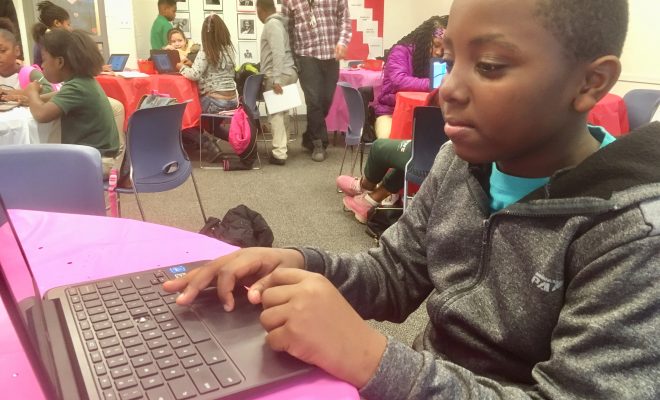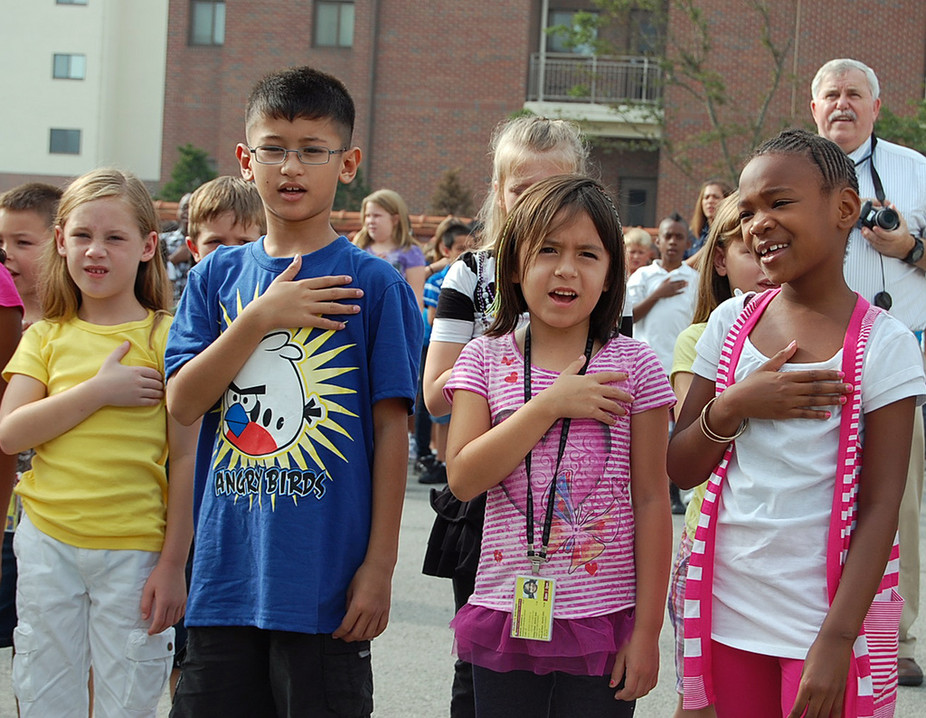Black Boys in Crisis: The School-to-Prison Pipeline

In this series, appropriately titled “Black Boys in Crisis,” I highlight the problems facing black boys in education today, as well as provide clear steps that will lead us out of the crisis.
It’s a statistically sound fact that high school dropouts in all demographics have a higher likelihood of incarceration at some point in their lives. Sadly, over half of black young men who attend urban high schools do not earn a diploma. Of the dropouts, nearly 60 percent will go to prison at some point. In fact, The Sentencing Project projects that 1 in 3 black men will likely see the inside of a prison cell at some point in their lives. The connection here is not just superficial.
Yes, it’s fair to say that high school dropouts are more likely to commit crimes because they do not have the means to make an honest living, but I also think this connection centers on a mentality. The same black boys who believe they aren’t good enough to earn the basic American right, a high school diploma, are the ones who feel they cannot make a solid contribution to society at large.
In order to delve more deeply, we need to go even further back. The decision to drop out of high school, after all, isn’t reached overnight. There are many factors that play into any student’s choice to not continue on to earn a high school diploma, some that are completely out of the control of the school and others that are certainly influenced by it.
Look in the face of any Kindergarten student and you’ll find some common themes: innocence, unquenchable curiosity, and potential. More so than the grades that follow, Kindergarten is a mixed bag of developmental, social and academic levels. Some kids arrive with a few years of childcare and preschool under their belts, while others have never even had a book read to them. The students who arrive in these Kindergarten classrooms are already products of their limited life experiences but their public school classrooms are intended to be equalizers. In a perfect world, what has happened outside the classroom should not be a factor in the learning environment and all students should have the same clean slate.
The reality, of course, is that the behavior of children is impacted by their life experiences and that behavior does impact the way a classroom functions. Kindergarten is just the first opportunity in our official public school system for teachers to effect positive change in students who need it from a behavioral standpoint – the real work starts before that though. The U.S. Department of Education Office for Civil Rights reports that black students make up just 18 percent of preschoolers but account for almost half of all school suspensions. Those statistics don’t improve with age. Around 5 percent of white students are suspended or expelled at some point in a K-12 career, compared with 16 percent of black students.
Enter the school-to-prison pipeline, or the correlation between students who are removed (suspended or expelled) from school and those who end up in prison at some point in their lives. Students who are removed from school, either temporarily or forever, also drop out of high school at much higher rates than students who are never removed from a classroom setting.
A study published by the University of Pennsylvania reports that black students make up 39 percent of students suspended in Florida, which doesn’t sound all that terrible until you consider another statistic: black students only account for 23 percent of the public school population in Florida. The study notes that black students are suspended and expelled more due to “unfair discipline practices” and appearing as “disrespectful or threatening.”
While the numbers for the state are bad, it gets worse in Orange County in the central part of the state where Orlando is located. Making up just 27 percent of the county’s public school population, black students represents 51 percent of the students suspended.
This is just a small portion of the country, of course, but consider this: 18 percent of the nation’s public school students are black but an estimated 40 percent of all students that are expelled from U.S. schools are black. This makes black students over three times more likely to face suspension or expulsion than their white peers. When you add in Latino numbers, 70 percent of all in-school arrests are black or Latino students. If you want to see the correlation between these school-age statistics and lifetime numbers, consider this: 61 percent of the incarcerated population are black or Latino – despite the fact that these groups only represent 30 percent of the U.S. population when combined. Nearly 68 percent of all men in federal prison never earned a high school diploma.
Given this information, the fact that the U.S. has the highest incarceration rate in the world is no surprise. The road to lockup starts in the public school systems — and it starts with unfair punishment.
Sixty-five percent of U.S. public schools reported at least one violent incident in 2013-2014, according to the National Center for Education Statistics (NCES) in their schools each year, but that number rises to 82 percent for schools where black students make up a majority. Though Hispanic boys are the most likely to be involved with gang activity at school, it is certainly an issue for black boys too – with 31 percent of students nationwide reporting seeing black gang activity in their schools. Violence is just one part of the criminal side of K-12 hallways, though. There are also higher numbers of non-violent crimes, like theft, in schools where more students are black than any other race.
All of that being said, there is still plenty of violence in schools where black students are the minority, and those acts are committed by non-black students. It’s also important to note that reporting standards for school crime may vary from school to school. This isn’t to say that educators and administrators are not telling the truth in predominantly white schools, but rather to say that based on other statistics, students of color tend to face harsher punishment for even the smallest offenses.
What do you think? Do students of color really face harsher punishment in K-12 schools across America?





